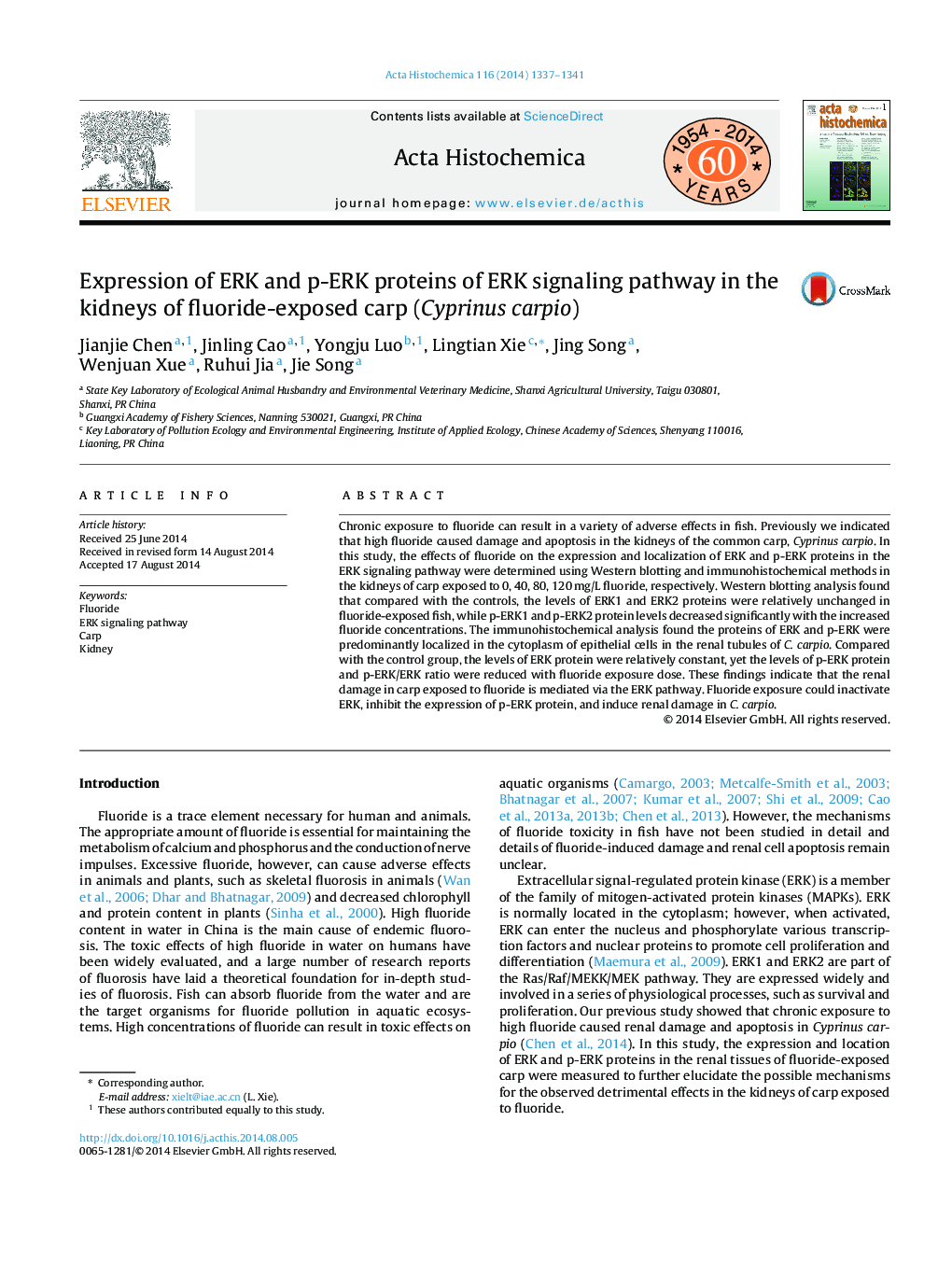| Article ID | Journal | Published Year | Pages | File Type |
|---|---|---|---|---|
| 10747142 | Acta Histochemica | 2014 | 5 Pages |
Abstract
Chronic exposure to fluoride can result in a variety of adverse effects in fish. Previously we indicated that high fluoride caused damage and apoptosis in the kidneys of the common carp, Cyprinus carpio. In this study, the effects of fluoride on the expression and localization of ERK and p-ERK proteins in the ERK signaling pathway were determined using Western blotting and immunohistochemical methods in the kidneys of carp exposed to 0, 40, 80, 120Â mg/L fluoride, respectively. Western blotting analysis found that compared with the controls, the levels of ERK1 and ERK2 proteins were relatively unchanged in fluoride-exposed fish, while p-ERK1 and p-ERK2 protein levels decreased significantly with the increased fluoride concentrations. The immunohistochemical analysis found the proteins of ERK and p-ERK were predominantly localized in the cytoplasm of epithelial cells in the renal tubules of C. carpio. Compared with the control group, the levels of ERK protein were relatively constant, yet the levels of p-ERK protein and p-ERK/ERK ratio were reduced with fluoride exposure dose. These findings indicate that the renal damage in carp exposed to fluoride is mediated via the ERK pathway. Fluoride exposure could inactivate ERK, inhibit the expression of p-ERK protein, and induce renal damage in C. carpio.
Related Topics
Life Sciences
Biochemistry, Genetics and Molecular Biology
Biochemistry
Authors
Jianjie Chen, Jinling Cao, Yongju Luo, Lingtian Xie, Jing Song, Wenjuan Xue, Ruhui Jia, Jie Song,
